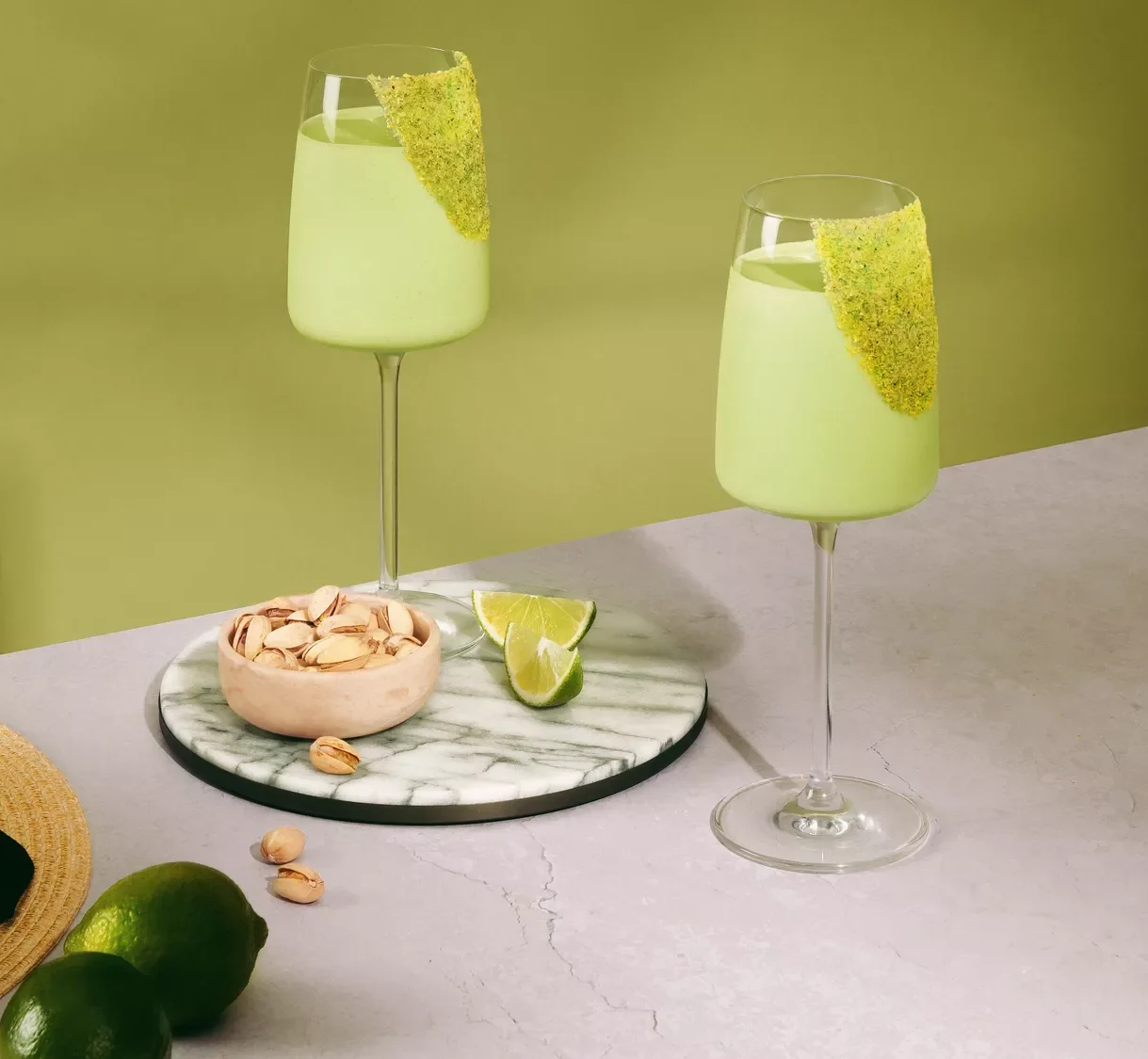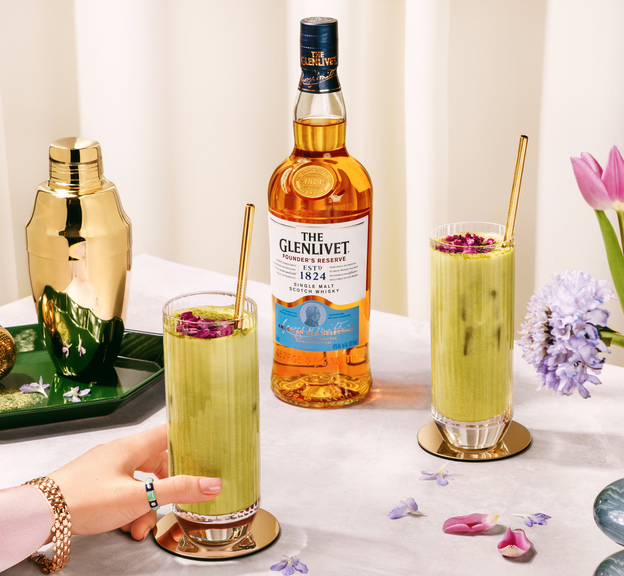
Whether you’re well versed on the best whisky cocktails to order at a bar, or you’ve only been recently introduced to the world of scotch, did you know that pairing whisky and wine can lead to some delightful drinks? We know that cola is a common companion to whisky but don’t overlook what the likes of a Chardonnay can bring to the table (or glass).
In this article, we’ll first delve into the differences between whisky and wine before exploring the types of wine that go well with whisky. Once you’re all clued up, we share some whisky and wine cocktail recipes to give you some inspiration on how to combine these two beverages.
The difference between whisky and wine
Whisky and wine are both alcoholic beverages which have centuries of history and have long been enjoyed as drinks on their own. And whilst they can share some commonalities in terms of particular flavour notes, there are distinct differences between them.
Ingredients
Whisky is primarily made from grains such as barley, corn, rye, or wheat. These grains are fermented, distilled, and aged in wooden barrels. Wine also undergoes fermentation. However, wine is made from fermented grapes or other fruits like apples or berries.
Production
Whisky is produced through a process called distillation. Grains are mashed, fermented, and then distilled to extract the alcohol before it is then aged. Wine is made by fermenting the sugars naturally present in grapes or other fruits, converting them into alcohol through the action of yeast.
Ageing
Whisky is typically aged in wooden barrels, which impart flavour and colour to the spirit over time. The ageing process can range from a few years to several decades, depending on the type of whisky. When it comes to how scotch is made, it must be matured for a minimum of three years but The Glenlivet has expressions that have been aged for far longer such as our 33-Year-Old Cellar Collection. Wine can be aged in barrels or bottles, but like whisky, how long it is aged can differ significantly. Some wines are only aged for a year, whilst other varieties mature for five years or longer.
Flavour and aroma
Whisky and wine are distinct from one another but can vary greatly depending on the variety. Whisky flavours are influenced by the type of grain, the production process, and the ageing conditions. Whisky often exhibits notes of caramel, vanilla, smoke, spices, nuts, and fruit. Wine flavours depend on the grape variety, growing conditions, and winemaking techniques, resulting in a range of flavours including fruity, floral, earthy, and tannic.
Alcohol content
Whisky generally has a higher alcohol content than wine. Whisky typically ranges from 40% to 60% alcohol by volume (ABV), while most wines have an ABV of around 12% to 15%. However, there are high-proof whiskies and fortified wines with higher alcohol content.
Can you mix wine and whisky?
The short answer is yes! There are plenty of ways that whisky and wine can be paired to create unique and tasty cocktails. The New York Sour is perhaps one of the best-known and is made with red wine and whisky, along with fresh lemon juice.
When combining these two alcohols, however, you do need to carefully balance the quantities of each and pay close attention to their characteristics. This will ensure you end up with a drink that tastes good, is free from unpleasant bitterness and has no harsh aftertaste.
What wine goes well with whisky?
There’s no one right answer here; it truly depends on what whisky you are looking to pair wine with and what your preferences are. Opting for complementary or contrasting flavours will also change which wines are the best options. When looking for wines that go well with whisky, you’ll want to consider all their characteristics such as whether the wine is white, rose, or red, whether it is sweet or dry, if it is full-bodied or not and what flavours dominate each variety. Here are some suggestions to help you get started on your wine and whisky pairing.
Sauvignon Blanc
Whiskies with more subtle or floral flavour profiles pair well with a light white wine such as a Sauvignon Blanc. Take our 8-year scotch for example. Its flavour is characterised by notes of vanilla and sweet clementine and has a slightly dry finish with a gentle spice. Sauvignon Blanc tends to be citrus led, meaning it will complement the fruit of the whisky and as a dry wine, the finish will match too.
Riesling
Riesling is another white wine that works well with more delicate whiskies, enhancing the notes of the whisky without overpowering them. Most Rieslings tend to be on the sweeter end of the spectrum but there are also semi-sweet and dry varieties.
Moscato
For sweeter whiskies with dessert-like flavours like our 10 year scotch, you can consider a semi-sweet or off-dry wine like a Moscato. The slight sweetness of the wine adds to the rich, sweet notes of the whisky.
Syrah
You don’t have to stick to white wines. Red wine and whisky can also be a delightful duo. Bold and peaty whisky varieties pair excellently with a full-bodied red wine such as a smoky Syrah, although a rich Cabernet would work well too. These wines, which are often packed full of dark fruit flavours alongside smoked meat notes and black pepper spice, can stand up to the robust flavours and enhance the smokiness of the whisky.
Sherry Wine
Sherry wine and whiskies that have been aged in sherry butts, such as The Glenlivet 12-year-old single malt scotch are a perfect match. Notes of fruit, nuts and spice are present in both, which means when combined, these flavours are big and bold.
Champagne
Champagne is commonly used in cocktails, and it certainly adds an extra special touch when added to whisky thanks to its fizz. In addition, it’s bright acidity and crispness offer a nice contrast to whisky flavours which are often rich and/or complex.
Whisky and wine cocktails
So, we know the difference between wine and whisky, and we’ve explored just some of the wine varieties that work well with whisky. Now we’re ready to craft some whisky and wine cocktails. You might already have an idea in mind of the types you’d like to try together but if you’re stuck for ideas, why not get started by following one of the following recipes?
The Glenlivet Royale
Our twist on a classic French 75 cocktail, this recipe combines single malt scotch and champagne. Notes of pineapple are balanced with the crisp flavours from the French sparkling wine while the bubbles add an extra touch. Garnished with a lemon twist, this drink is simple yet elegant and is sure to impress.
Sangria Punch
Sangria punch is made with red wine and is perfect for serving up at an outdoor dinner party. It’s fruity, slightly spicy, and wonderfully refreshing when served over ice. Combine it with smooth scotch whisky though, and you’ve got something even more special.
Rose Royale
This sparkling rose cocktail is perfect for sipping on a summer’s day or sharing with someone special on Valentine’s Day. It combines a 12-year single malt which has been infused with rose tea and sparkling rose wine for a drink which is fruity, floral and fantastically fizzy.
For more inspiration on how to drink whisky in new and exciting ways, check out our guide to beer and whisky pairing. We’ve also got plenty of whisky cocktail recipes you can try, including fruity drinks and Old Fashioned variations.


